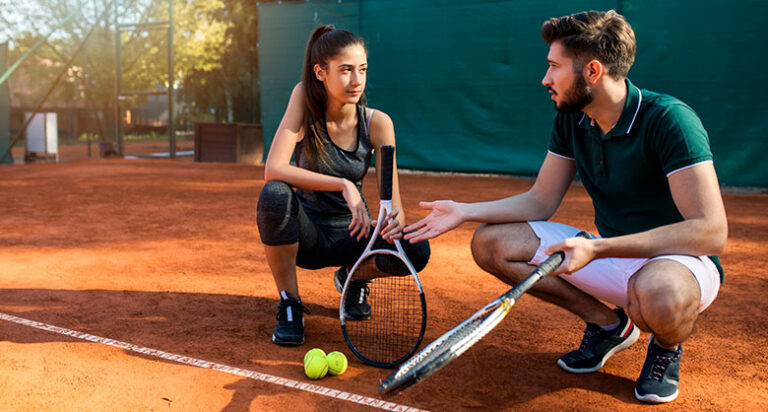Preventing
the
coach-athlete relationship

Coaches are influential adults in the lives of young athletes. A healthy, professional, and positive coach-athlete relationship can improve an athlete’s self-esteem, performance, satisfaction with sport, and overall well-being.[5]
The coach-athlete relationship typically entails differences in power, especially between adult coaches and youth athletes.[3] These differences can be constructive—as coaches use their knowledge and experience to help athletes stay safe, develop skills, and perform at a higher level. Effective coaches use respect, support, positive discipline, and motivation to encourage high levels of performance, focus, and sportsmanship from athletes.[5][9]
Example 1
You are coaching RJ, who has been involved in judo for two years. He has trouble focusing during training and competitions, which puts him and others in danger. You meet with RJ and his parents to clearly state your expectations for his behavior in class and the changes you need to see before he can continue to compete. You, RJ, and his parents work together to create an action plan.
Differences in power can also be exploited and cause unnecessary harm to athletes, such as when coaches use negative techniques (such as fear, shame, and punishment) to shape behavior.[3] Behaviors that some coaches and parents tolerated in the past, like denying athletes water breaks or repeatedly belittling them, are abusive and considered forms of Physical and Emotional Misconduct.
Example 2
You are a league director. Dylan, a coach in your league, has a reputation as a tough coach who will do anything to win. He is known to scream at athletes and put them down. You have also heard reports that he denies athletes water breaks when he thinks they are being lazy. You have noticed that many athletes Dylan has coached decide to stop playing the sport altogether, more so than athletes on other teams. You decide to talk with Dylan about the harm his abusive coaching style is causing.
Features of Motivation and Positive Discipline
• Builds self-esteem
• Supports athletes in reaching their goals
• Enhances team performance
• Helps athletes understand consequences of actions
• Shows how to correct harmful or unproductive behavior
Features of Misconduct
• Emotionally and/or physical harms athletes
• Tears down self-esteem
• Can lead to athletes leaving sport
• Causes changes through fear, not learning
• Suggests winning is more important than athlete well-being
Features of Motivation and Positive Discipline
• Builds self-esteem
• Supports athletes in reaching their goals
• Enhances team performance
• Helps athletes understand consequences of actions
• Shows how to correct harmful or unproductive behavior
Features of Misconduct
• Emotionally and/or physical harms athletes
• Tears down self-esteem
• Can lead to athletes leaving sport
• Causes changes through fear, not learning
• Suggests winning is more important than athlete well-being
Learn more
Visit the below pages for resources and links to help you recognize, prevent, and respond to abuse and misconduct in your organization.
TOOLKIT RESOURCES
Use these Toolkit handouts and activities to help your team or colleagues discuss principles together and put them in action in your sport setting.
HELPFUL LINKS
A broad range of organizations and community resources are just a click away to help coaches, parents, and other athlete allies support individuals in need.
